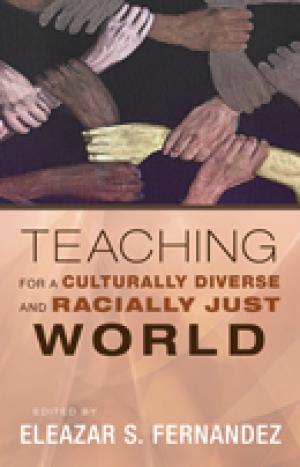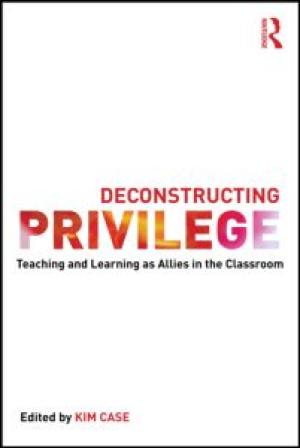Resources
Study used the Measure of Epistemology Reflection to explore impact of service-learning and social justice education on cognitive development. Results showed service-learning courses had a positive impact on cognitive development, while service-learning courses w/a social justice emphasis appeared to have more impact on students’ cognitive development than those without.
As students develop cognitively, integrating knowledge in ways that reflect their learning, they also need to grow both interpersonally, by considering themselves as part of a larger whole, and intrapersonally, by establishing a belief system that can influence and guide their choices and experiences.
This study uses meta-analysis to examine the relationship between exposure to diversity and cognitive development systematically. Findings suggest that several types of diversity experiences are positively related to several cognitive outcomes, but magnitude of effect varies substantially depending on type of diversity experience, type of cognitive outcome, and study design.
Provides 12 tips on enhancing student learning when teaching issues of diversity in the college classroom. Examples: Gain awareness of biases; specify course objectives; encourage higher order thinking skills; and create and safe and engaging classroom climate. Includes links to more detailed discussion of each tip.
Chronicle of Higher Education article (May 2013). Discusses experiences of an openly gay professor teaching a year-long first-year core course. He struggles with fear of teaching a text that dealt with issues of homosexuality while also allowing an open forum for discussion.

Click Here for Book Review Abstract: Cultural and ethnic diversity is the reality of our world, and much more so in this age of heightened globalization. Yet, do our ways of doing theological education match with our current reality and hopes for a colorful and just tomorrow? How shall we do theological formation so it helps give birth to a culturally diverse, racially just, and hospitable world? This edited volume gathers the voices of minoritized scholars and their white allies in the profession in response to the above questions. More particularly, this volume gathers the responses of these scholars to the questions: What is the plight of theological education? Who are the teachers? Who are our students? What shall we teach? How shall we teach? How shall we form and lead theological institutions? It is the hope of this volume to contribute to the making of theological education that is hospitably just to difference/s and welcoming of our diverse population, which is our only viable future. When we embody this vision in our daily educational practices, particularly in the training of our future religious leaders, we may help usher in a new, colorful, and just world. (From the Publisher)

Although scholarly examinations of privilege have increased in recent decades, an emphasis on privilege studies pedagogy remains lacking within institutions. This edited collection explores best practices for effective teaching and learning about various forms of systemic group privilege such as that based on race, gender, sexuality, religion, and class. Formatted in three easy-to-follow sections, Deconstructing Privilege charts the history of privilege studies and provides intersectional approaches to the topic. Drawing on a wealth of research and real-life accounts, this book gives educators both the theoretical foundations they need to address issues of privilege in the classroom and practical ways to forge new paths for critical dialogues in educational settings. Combining interdisciplinary contributions from leading experts in the field-- such as Tim Wise and Abby Ferber-- with pedagogical strategies and tips for teaching about privilege, Deconstructing Privilege is an essential book for any educator who wants to address what privilege really means in the classroom. (From the Publisher)
The authors respond here to each other's essays published in this issue of the journal. In “Holding Us Accountable,” Anna Floerke Scheid and Elisabeth T. Vasko respond to Karen Teel's essay, “Getting Out of the Left Lane.” In “Challenges and Convergences,” Karen Teel responds to the essay “Teaching Race” by Anna Floerke Scheid and Elisabeth T. Vasko.
While a number of scholars in the field of Christian theology have argued for the importance of teaching diversity and social justice in theology and religious studies classrooms, little has been done to document and assess formally the implementation of such pedagogy. In this article, the authors discuss the findings of a yearlong Scholarship of Multicultural Teaching and Learning (SoMTL) study, which examined student learning and faculty teaching regarding race and white privilege in two theology classrooms. After a brief overview of the study's design and execution, we reflect upon our findings and draw out implications for pedagogical practices. In particular we discuss students' emotional responses to the material and the role of cognitive dissonance in student learning with respect to racial inequality via social structures. See a companion essay in this issue of the journal (Karen Teel, “Getting Out of the Left Lane: The Possibility of White Antiracist Pedagogy”) and responses by the authors of both essays, also published in this issue of the journal (“Responses: Toward an Antiracist Pedagogy”).
This article maintains that knowledge of the literature on multicultural education and social justice pedagogy is indispensable for white college professors who desire to teach effectively about racial justice concerns. In exploring this literature, I have noticed that many publications either articulate theory or reflect on concrete classroom strategies, while relatively few deploy theory to evaluate specific attempts at teaching for justice. This seems to me a gap worth filling. Speaking as a white, conventionally trained, Catholic theologian, I begin by explaining why I deem it appropriate to employ antiracist pedagogy. I then demonstrate that the literature on multicultural education and social justice pedagogy is essential to this effort by utilizing both types of literature, theoretical and practical, to analyze my own strategies and goals to date. Throughout, I discuss white antiracist theological pedagogy not as an accomplished fact, but as an emerging endeavor. See a companion essay in this issue of the journal (Anna Floerke Scheid and Elisabeth T. Vasko, “Teaching Race: Pedagogical Challenges in Predominantly White Undergraduate Theology Classrooms”), and responses by the authors of both essays, also published in this issue of the journal (“Responses: Toward an Antiracist Pedagogy”).